Bard Center for Environmental Policy
The CEP Annual Update – 2011
Dear Friends,
Early each spring, we take time to look back on the past year at CEP, and it has been a very busy one. On top of the powerful educational work, the research, and the policy practice of our faculty and students, in 2011 we launched several innovative new initiatives:
- The Bard MBA in Sustainability
- A “January Term” for our MS students
- C2C Fellows: A national organization for undergraduate sustainability leaders.
The bottom-line: CEP is making waves!
 The Bard MBA in Sustainability: This innovative new degree is among a handful of business programs around the world that fully integrate sustainability throughout the curriculum. The NY Times ran a nice article on the MBA, noting that the Bard program “anticipates that many graduates will start their own green-minded businesses and that others will work for established companies as “intrapreneurs,” blending sustainability initiatives into every function of a business, including operations, marketing, finance and strategy.” The finance and political economy dimensions of the MBA are being developed in conjunction with Bard’s renowned Levy Economics Institute.
The Bard MBA in Sustainability: This innovative new degree is among a handful of business programs around the world that fully integrate sustainability throughout the curriculum. The NY Times ran a nice article on the MBA, noting that the Bard program “anticipates that many graduates will start their own green-minded businesses and that others will work for established companies as “intrapreneurs,” blending sustainability initiatives into every function of a business, including operations, marketing, finance and strategy.” The finance and political economy dimensions of the MBA are being developed in conjunction with Bard’s renowned Levy Economics Institute.
The Bard MBA has a unique, weekend-intensive structure. Students attend residencies once each month from Friday morning to Monday afternoon, over two years, allowing them to continue to work up to thirty hours per week, and, potentially, attend the program from anywhere across the eastern US, and even beyond. Weekend-intensive residencies are supplemented by on-line instruction. The monthly residencies will be held primarily in NY City, and we are now enrolling students for our first class in Fall 2012.
 In addition to the new MBA, we have also just inaugurated a two-week “January term” into our MS curricula. One team of students travelled with Professor Tafur to Oaxaca, Mexico, to learn about our ongoing research partnership with INSO, the Institute for Nature and Society, focused on “slow water” management. You can see the terrific video about our work in Oaxaca here.
In addition to the new MBA, we have also just inaugurated a two-week “January term” into our MS curricula. One team of students travelled with Professor Tafur to Oaxaca, Mexico, to learn about our ongoing research partnership with INSO, the Institute for Nature and Society, focused on “slow water” management. You can see the terrific video about our work in Oaxaca here.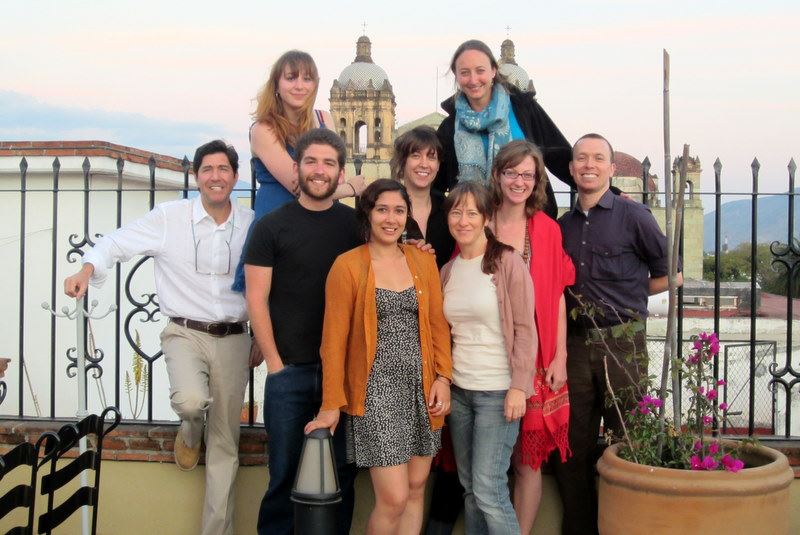
- January term group in Oaxaca with ProfessorsTafur and Ranville
Another group, working with Professor Barnes, explored the potential for biochar to scale as a climate solution.
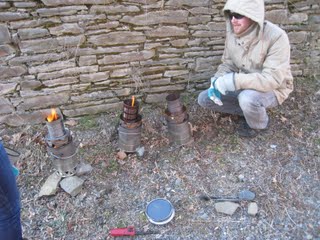
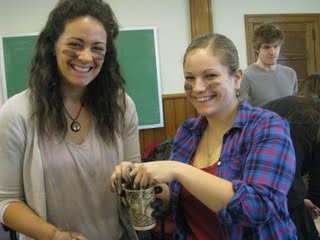
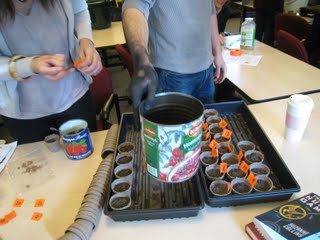

And guest instructor Judy Anderson organized a workshop on private land conservation, including both students and members of the land trust community. Anderson offered a week-one primer on land trust management, and a second week exploring how climate change is affecting land preservation.
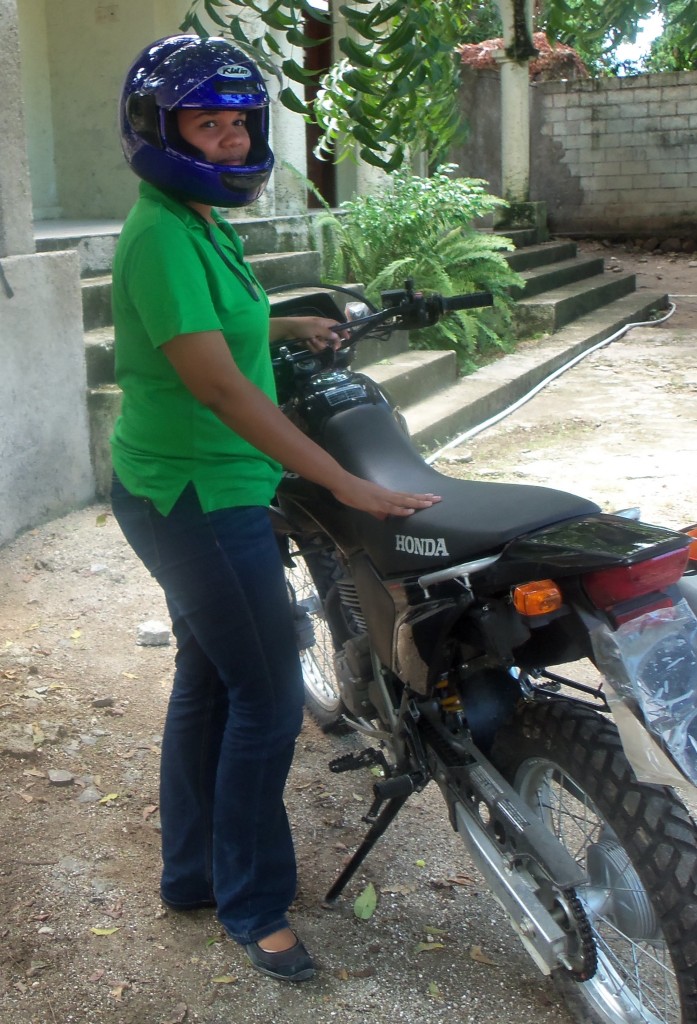
It has also been a quite productive year for our ongoing educational programs. Last September, our environmental policy masters program enrolled twenty first-year students, who are now deep into their interdisciplinary coursework. The second year students, meanwhile, have been off on challenging internships: doing sustainability work with the software firm AutoDesk in San Francisco; as researchers and analysts for the German Marshall Fund, the EPA, US AID, and NRDC; and elsewhere focused on local environmental issues, from the Gulf of Mexico to the Ohio Valley. Rachel Savain, ’12, spent her internship in Haiti, working for a Dutch NGO on waste management. Rachel earned the nickname “motorcycle girl” for her preferred form of transport for interviews and team meetings, and has now joined the company as a consultant. And this year, the Policy program also welcomed back one MI Peace Corps Volunteer from the Philippines, and two returning joint-degree students from Pace Law school.
Fall 2011 marked the start of the second year of our new Climate Science and Policy MS program. We enrolled seven first-year students into the program, which has a focus on the interactions among agriculture, ecosystems and climate. Second-year climate students meanwhile have been off on internships with the Maine Housing Authority, the Northern Alaska Environmental Center, WorldWatch, and at a renewable energy lab in Germany. Patrick DiCiacco, ‘12, worked at the Department of Energy, where at the end of his internship, he personally pitched a project of his own design to Secretary Chu. Patrick proposed involving undergraduate energy clubs around the country in research consulting projects for area businesses. Secretary Chu liked the idea so much that he gave it a green light on the spot and hired Patrick to get the project off the ground.
In 2011, our alums also achieved special recognition, including Lindsey Lusher Shute ’07, who received press in The New York Times and on NPR for work with National Young Farmers’ Coalition; Enid Cardinal ’04 who was hired to advise RIT President on Sustainability, and Taryn Morris, cert-’09 and Luce Scholar, for publishing her work in Diversity and Distributions. Alums also participated in panels for our orientation session for new students (Jackson Morris ‘07, Lindsey Shute ‘07, Katrina Shindledecker ’06, and Ben Hoen ‘06) and as part of our land trust January term (Katrina Howey ‘04, Christine DeBoer ‘08, and Katrina Shindledecker ‘06, again). We send a special thank you to those of you who contributed to our new Alum Internship Fund, and to Prapti Bhandary ’11, Katrina Shindledecker ’06, and Jon Greisser ‘04 for chairing the effort this year.
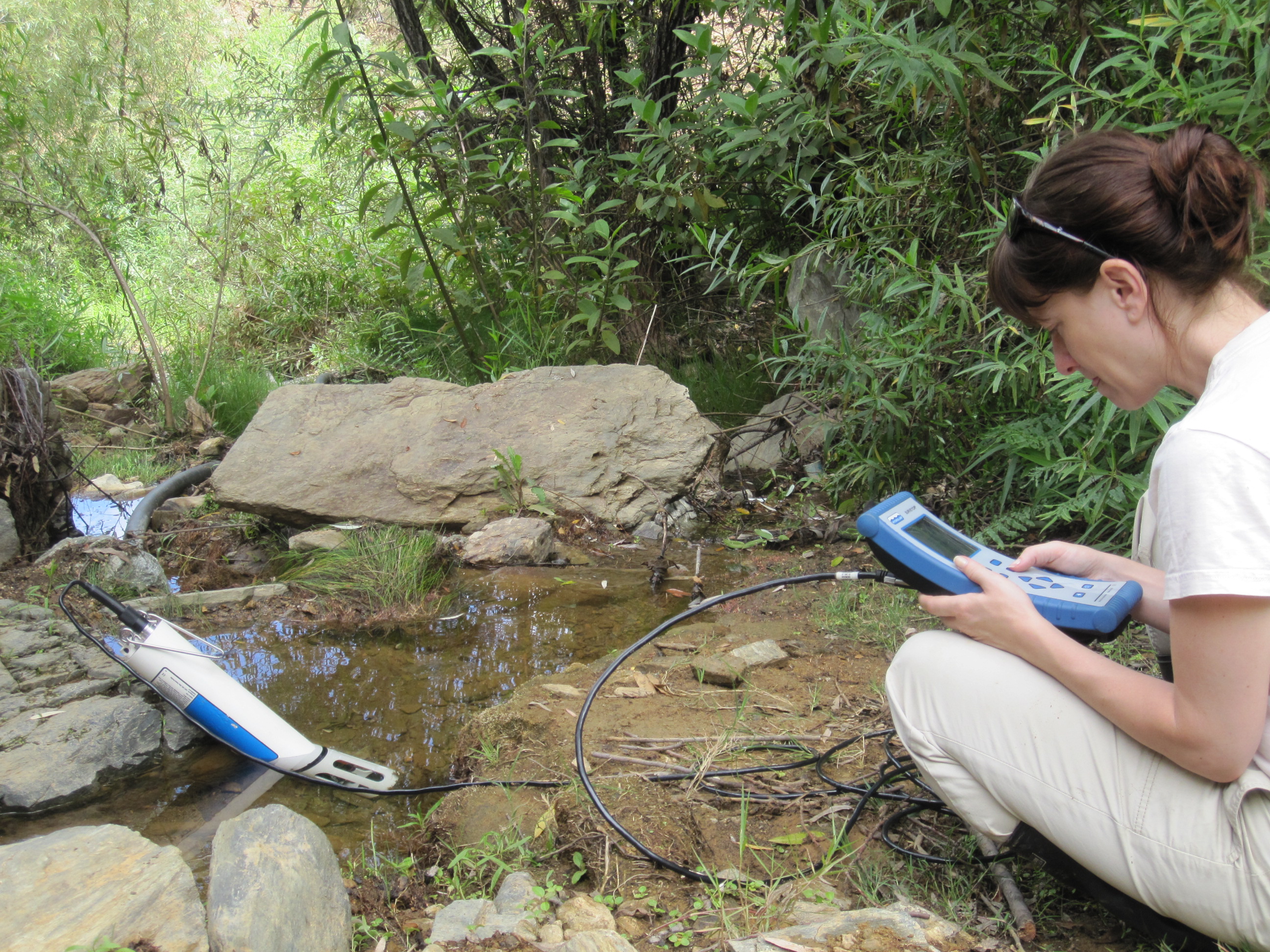
We continue to maintain a strong research relationship with INSO in Oaxaca. Working with Dr. Ranville, three CEP student interns (Michelle Phillips, ’12, Noland Gardner, ’12, and Simon Topp’ 12) spent the summer and fall developing a water quality baseline for the region, while Professor Segarra is writing on the politics of water reform. Beyond Oaxaca, Bard CEP faculty are researching, contributing to conferences, and publishing papers across a wide spectrum—from corn ethanol subsidies to the properties of biochar, and from changing arctic ecosystems to resource conflicts in Latin America. More on faculty activities below.
Bard CEP’s public programs continue to enrich the national dialogue , and cultivate youth leadership on climate change and sustainability. In April 2011, A CEP- sponsored program engaged 16 congressional and US Senate offices in either video or in-person, bipartisan dialogue about climate solutions with students at 19 colleges and universities. Students talked directly with their elected representatives in Washington and their staff. The picture below, with the details provided in the caption, gives a flavor of this work.
 Top Row: Rep. Mark Hanna (R-NY) talks with students at Hamilton College; Rep. McCollum(D-MN) visits students at Macalester College; an aide to Rep. Graves (R-MO) talks with William Jewell College.Second Row: Aides to Senator Bill Nelson (D-FL), Joe Lieberman (D-CT), and Senator’s Udall (D-CO) and Bennett (D-CO), talking with students at Rollins College, the University of Central Florida, the University of Connecticut, and the University of Colorado.Third Row: Congressman Jared Polis (D-CO) visits students at UC Boulder; an aide to Senator Sharrod Brown (D-OH) talks with students at Oberlin College.Final Row: Congressman Henry Waxman (D-CA) with C2C staff member Anna Goldberger following his video dialogue with students at UCLA: Senator Dick Durbin (D-IL) talks with students at Northern Illinois University and Elgen High School.
Top Row: Rep. Mark Hanna (R-NY) talks with students at Hamilton College; Rep. McCollum(D-MN) visits students at Macalester College; an aide to Rep. Graves (R-MO) talks with William Jewell College.Second Row: Aides to Senator Bill Nelson (D-FL), Joe Lieberman (D-CT), and Senator’s Udall (D-CO) and Bennett (D-CO), talking with students at Rollins College, the University of Central Florida, the University of Connecticut, and the University of Colorado.Third Row: Congressman Jared Polis (D-CO) visits students at UC Boulder; an aide to Senator Sharrod Brown (D-OH) talks with students at Oberlin College.Final Row: Congressman Henry Waxman (D-CA) with C2C staff member Anna Goldberger following his video dialogue with students at UCLA: Senator Dick Durbin (D-IL) talks with students at Northern Illinois University and Elgen High School.
Of course, behind these completed dialogues were contacts made by CEP staff with students, faculty and staff at over 300 colleges and universities nationwide, and invitations to dozens of members of Congress and US Senators. Universally the campus- to-congress dialogues were quite productive, with students and political leaders engaged in substantive discussion and informative question and answer.
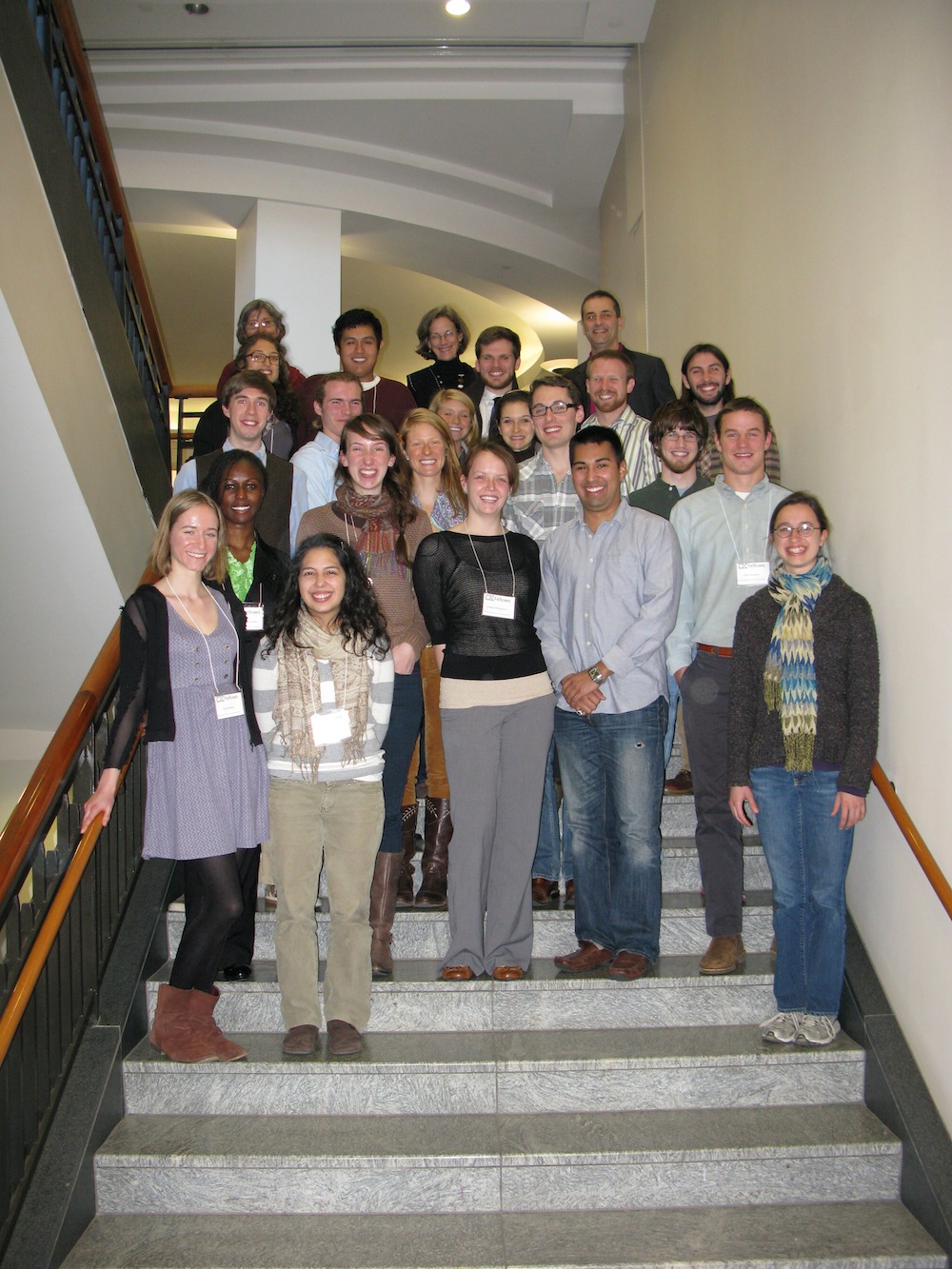
In December, CEP transitioned from dialogue to the C2C Fellows Program. C2C Fellows is a national network of undergraduates and recent graduates, providing training for aspiring sustainability leaders in business and politics.Working with a team of three CEP graduate students, Tim Maher ’13, Nick Martin ’13 and Brady McCartney, ’13, Director Goodstein launched the inaugural workshop at Bard in December, involving two dozen student leaders from across the Northeast.
The team held a comparable workshop at the University of Georgia in February, and another is scheduled in Ohio at Oberlin College in April. C2C Fellows is the “power network” for young leaders in sustainability, and we expect the program to grow into a major national initiative, and force, in coming years.
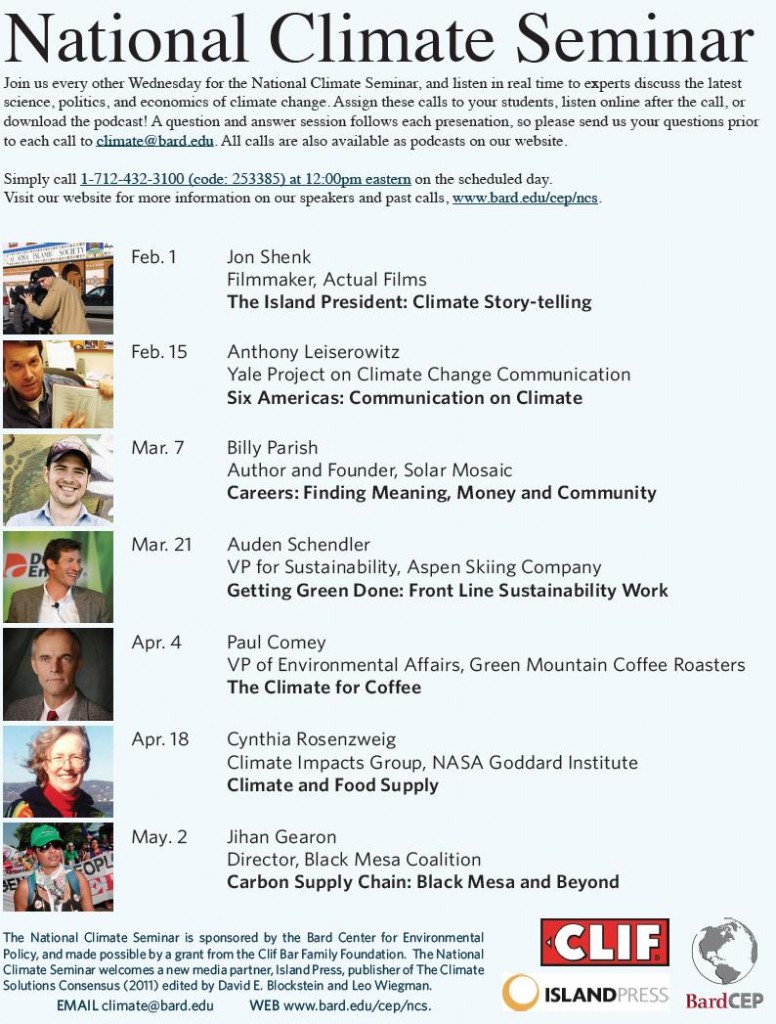 On a last programmatic note, CEP continued to sponsor the National Climate Seminar, our twice-monthly national conference call with top climate scientists, policy analysts, decision-makers and communicators. Highlights of the year included Penn State climate scientist Richard Alley; IBM’s Director of Big Green Innovations, Sharon Nunes; environmental justice and urban sustainability pioneer Majora Carter, and green business leader Hunter Lovins. The seminar is advertised to our list-serv of over 10,000 and draws regular participation from individuals and classrooms across the country.
On a last programmatic note, CEP continued to sponsor the National Climate Seminar, our twice-monthly national conference call with top climate scientists, policy analysts, decision-makers and communicators. Highlights of the year included Penn State climate scientist Richard Alley; IBM’s Director of Big Green Innovations, Sharon Nunes; environmental justice and urban sustainability pioneer Majora Carter, and green business leader Hunter Lovins. The seminar is advertised to our list-serv of over 10,000 and draws regular participation from individuals and classrooms across the country.
I ended my letter last year by saying we had had a good year at Bard CEP. This time, the operative word is busy. Busy is also good, because, as all of us at CEP are very aware, we do not have much time to make big changes: in our energy system, our food systems, and more generally, in the way the world does business. In this work, we have been enabled by, and are deeply grateful to a group of major donors and advisors specifically helping to launch the MBA, led by Andrea Soros Colombel ‘03-c, and including Mike and Lindy Keiser, Rick Stuckey, Carolyn Marks-Blackwood and Steve Smith.
In 2011, CEP was honored to receive major a major grant from the Margaret A. Cargill Foundation of $575,000. The funds are supporting scholarships, faculty development and research, and public programs at CEP. The grant will also enable us, starting this year, to offer MAC grants to four second-year students each year for the next three years—specifically for international internships and for students working domestically in low income communities. And finally, the gift will help launch the new MBA in Sustainability. MAC support is helping us widen many of the doors that we open for our students.
At CEP our goal is to scale up solutions, at the speed that science and justice demand. Thank you to everyone who has helped keep us this busy, and always on task.
Sincerely,
Dr. Eban Goodstein
Director, Bard Center for Environmental Policy
Director, MBA in Sustainability
Faculty Updates:
Rebecca Barnes organized a workshop for early career researchers in catchment sciences, and also presented her work on the impacts of warming and atmospheric deposition in alpine ecosystems and the effects of biochar in watersheds at two national meetings. She had three papers accepted for publication: on Rocky Mountain stream water chemistry at Vadose Zone Journal; on denitrification and organic matter quality at Journal of Geophysical Research – Biogeosciences, and on the hydrologic properties of biochars at Biomass & Bioenergy.
Mark Becker was recently elected to serve on the board of the Global Spatial Data Infrastructure Association (http://www.gsdi.org/ ) an agency focused on promoting international cooperation and collaboration in support of local, national and international spatial data infrastructure developments to allow nations to better address pressing social, economic, and environmental issues. He was also recently awarded a grant from NASA’s Innovations in Climate Education program (https://nice.larc.nasa.gov/) to develop an online mapping tool that integrates climate change research data with a wide variety of demographic and earth science information for use in K through 12 educational programs.
Eban Goodstein published a paper on climate change and Arctic tipping points in Ambio. He continues to advise Chevrolet on their $40 million clean energy investment initiative. Goodstein’s college textbook, Economics and the Environment was re-signed for a 7th edition by John Wiley and Sons, and Goodstein blogged regularly in Grist.org and other national outlets on climate change issues. Goodstein delivered keynote addresses, research lectures or participated in panel discussions at Dartmouth and Belmont College, and at the US Ecological Economics, and Association for Environmental Studies and Sciences meetings. He also organized at Bard, the annual meeting of the Northeast Environmental Studies Group, engaging 60 regional faculty in two days of discussion.
Jennifer Phillips was awarded an EUS Mellon Foundation grant to establish and conduct field experiment on the use of Chicory in pastures to reduce internal parasite infection in ruminants. She developed and taught new graduate course (8 credits over two semesters) on the Science of Agriculture and Ecosystems in the context of climate change.
Mara Ranville spent the year engaged in water quality research in Oaxaca, leading a team of three CEP interns. Dr. Ranville will not be returning to her position at CEP next fall, having chosen to pursue other professional work. Her contributions to our program were foundational. She helped pioneer the modular curriculum, advised dozens of internships and theses, and served for three years as interim Director. Bard CEP is indeed very fortunate to have had her as a professor and administrator, and we look forward to learning what new heights she will scale.
Caroline Ramaley along with Professor Gautam Sethi, delivered presentations on the use of Concept Mapping in academic writing at both the Association for Environmental Studies and Sciences, and at the Northeast Environmental Studies Group meetings.
Monique Segarra contributed a chapter entitled “Challenging Neo-liberalism and Development: Human Rights and the Environment In Latin America” in Katherine Hite and Mark Ungar, eds., Human Rights Challenges of the Past, Challenges for the Future. (Woodrow Wilson and Johns Hopkins Press). She travelled twice to conduct research on the politics of water reform in Oaxaca, with the work funded through an EUS Mellon grant. She presented these results at the Association for Environmental Studies and Sciences meeting.
Victor Tafur presented a lecture on “The United States Clean Water Act at 40”, at the Universidad del Rosario, Bogotá, Colombia. He published a study on water law, mining and hydro-energy conflicts in South America in the International Journal of Rural Law and Policy 2011. He has also been consulting on environmental law compliance and sustainability for major Latin American corporations.
Susan Winchell-Sweeney co-authored a chapter entitled, “Testing the Paleo-Maritime Hypothesis for Glacial Lake Iroquois: Implications for Changing Views of Past Culture and Technology,” in the book, The Archaeology of Maritime Landscapes.
Alumni/a News:
Enid Cardinal ‘04 is now the senior sustainability adviser to Rochester Institute of Technology President Bill Destler.
Ben Hoen ’06, was lead author on Berkeley study, “Residential Solar PV Systems Boost Sales Price of California Homes”, which found that residential solar photovoltaic systems boost the sales price of California homes.
Amy Faust ’07 is adjusting to the eight-hour time difference in Dar es Salaam, Tanzania, where she is working as an Environmental Specialist at the World Bank, specializing in climate change planning.
Katie Van Sant ’07 joins Bard College as the MBA in Sustainability Marketing and Recruiter Coordinator. She is tasked with helping launch the new degree program, which based out of New York City, and to recruit the pioneering class to enroll in the fall of 2012.
Michael Foster M.S. ’07 published an article in Fisheries, entitled “Fostering the Development of Conservation Leadership at Minority-Serving Institutions”.
Kytt MacManus ’08 conducted a GIS analysis on the at-risk populations near nuclear power plants which was used an article in Nature written by Declan Butler and published online on April 21, 2011.
Molly Williams ’08, Bard CEP’s Admissions and Alumni/ae Coordinator, helped put together a community event on land conservation and climate change at Bard on January 23rd. Among the roundtable participants were Christine DeBoer ’08, Executive Director of the Wallkill Valley Land Trust; Katrina Shindledecker ’06, Director of Land Preservation at the Hudson Highlands Land Trust; and Katrina Howey ’04, Northeast Program Coordinator at the Land Trust Alliance. Also in attendance was Kirsten Wilson ’07.
Maggi Quinlan ‘09 works with the operations division at Chesapeake Energy to ensure daily compliance on drilling locations within the Marcellus Shale. She interacts with regulatory agencies regarding violations at well sites and remediation activities. Our congratulations go out to Maggie, who was married in a catholic ceremony on December 10, 2011.
Victor-Pierre Melendez ‘10, Director of Clearwater’s Green Cities Initiative, was honored at with a Luminary Award for his work bringing environmental education and watershed awareness to the communities of the Hudson Valley, and for his dance performance instruction serving under-represented communities through the Center for Creative Education in Kingston, NY.
Brent Miller ‘11 testified in front of the PA House of Representatives Game and Fisheries Committee on the topic of “Sunday Hunting.” Brent focused his master’s thesis and internship work on this very topic, which has proved invaluable to him in his current position as Northeastern States Manager at the Congressional Sportsman Foundation. The hearing was televised live and streamed over the Internet; the video is also available online at the Committee website.
Recent graduate, Tim Banach ’11, received two job offers in January, one with the Clean Energy Finance and Investment Authority in Connecticut, and one with the Pace Energy and Climate Center in White Plains. Tim accepted a full time job with Pace as a senior analyst working on combined heat and power and district energy in New York and New England.
After working as manager of food and events at the High Line Park in NYC, Vanessa Arcara ‘11 was offered a position at Slow Food USA, and is now Manager of Special Projects. Vanessa also presented at the 2011 AASHE Conference this past fall, where she discussed integrating strategic communications into campus sustainability initiatives, a talk adapted from her master’s thesis entitled, “Moving Millennials: Engaging youth with food and agriculture policy.”
Prapti Bhandary MS ’11, along with Simla Tokgoz of the Environment and Production Technology Division at International Food Policy Research Institute (IFPRI), published an article in Green on biofuel demand in Brazil and U.S. markets called “Comparison of Brazilian and U.S. Biofuel Demand: The Role of Vehicle Fleets and Prices in Meeting Policy Targets.”
Bard CEP Blog:
Read about intern experiences, faculty research, and other CEP news on our blog at www.bard.edu/cep/blog .
Thank You:
We are grateful to CEP alumna Diane O’Neil ’04-c , for donating the use of her farm for research and teaching purposes. Thank you as well to Clif Bar Foundation and The Trace Foundation for generous support for programs and scholarships, and to Cook+Fox for providing a home for the Sustainable Business Seminar series in NYC.
National Climate Seminar, Spring 2011 Schedule
Feb. 1 Jon Shenk, Filmmaker, Actual Films
The Island President: Climate Story-telling
Feb. 14 Anthony Leiserowitz, Director, Yale Project on Climate Change Communication
Six Americas: Communication on Climate
Mar. 7 Billy Parish, author and founder, Solar Mosaic
Climate Careers: Finding Meaning, Money and Community
Mar. 21 Auden Schendler, VP for Sustainability, Aspen Skiing Company
Getting Green Done: Sustainability Work on the Front Lines
Apr. 4 Paul Comey, VP of Environmental Affairs, Green Mountain Coffee Roasters
The Climate for Coffee
Apr. 18 Cynthia Rosenzweig, Director, Climate Impacts Group, NASA Goddard Institute
Climate and Food Supply
May. 2 Jihan Gearon, Director, Black Mesa Coalition
Carbon Supply Chain: Black Mesa and Beyond
All calls are noon EST. For call-in information, visit www.bard.edu/ncs .
